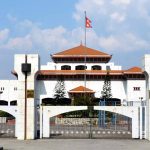
Several laws have been modified by a new government decree to improve government operations. According to the amended law, public employees have seven days to streamline government procedures in order to resolve the concerns of service seekers. If you don’t follow the law, you will face consequences.
A court penalty may be avoided in criminal proceedings involving the government if the victim and defendant reach a settlement. Since only 15% of the total amount and fine ordered by the original court must be deposited, the law that required jail for failure to pay fines has been repealed. As a result, the government increased the number of settlement options available for criminal cases involving the government.
The government expanded its list of settlements to include ten additional criminal charges related to the government that it will either look into or file in court. Enlisted in its settlement list are cases involving fraud, unfair transactions, loss of public property, criminal breach of trust related to loss, loss of public property, loss of property related to a contract or contract related to loss, loss of public property, and loss.
The government claims that the legal resolution of criminal nuisance matters under Section 285 (Civil Penal Code, 2074 BS), which are mandated to be resolved in accordance with the law, will prevent the need for repeated court hearings. Previously, the government case was only available for settlement in cases involving banking violations involving check bounces.
The ordinance states that the members of the executive committee will choose an acting chairperson and vice chairperson or head and deputy head from among themselves if the positions of chairperson and vice chairperson or head and deputy head at the local level become vacant for any reason. Additionally, if the position of ward chairperson becomes vacant for any reason, the members of the ward committee will choose an acting ward chairperson from among themselves.
In a similar vein, government employees’ obligatory retirement age has been raised from 58 to 60. In addition, the government has eliminated legal obstacles to the seizure of illicit assets. It is no longer difficult to seize illegal assets and tools used in criminal activities. Similar plans have been made to either use the confiscated automobiles at a discounted value by depositing them or to promptly auction them off when they are turned over to the court.
Changes have been made to the non-resident Nepali citizenship in order to foster an environment that is conducive to investment. Free visas for ten years of stay in Nepal and free multiple-entry visas for two years are elements of the new ordinance for non-resident Nepali citizens.
If an offender is given a sentence of less than a year in prison, they can pay a fee instead of going to jail. The victim’s spouse, child, parents, or son or daughter will get the compensation if the victim passes away. A national identity card has increasingly become required in order to stop the misuse of social security benefits. Likewise, pensions will now be granted to teachers as well.
There has been an agreement to establish at least one service provider health institution at each local level for the purpose of the initial service point in order to make the health insurance scheme successful. In a similar vein, Nepali businesses are now permitted to invest outside.
The establishment of subsidiaries and branches abroad, as well as the transfer of profits back to Nepal, are all permitted by law for Nepali IT firms. Additionally, the procedure has been streamlined to eliminate the need for non-resident Nepalis to go through it while making foreign investments.
Following the issuance of this ordinance, industries with both foreign and Nepali investment would be allowed to obtain loans from international financial institutions with Nepal Rastra Bank’s clearance. Additionally, it is now easier to repatriate the money earned from foreign investments in Nepal. The Specialized Investment Fund, which will be established in Nepal, is now available to foreign investment.
The existing setup, which only provides manufacturing companies with facilities comparable to export industries when they sell their goods to industries within the special economic zone, has also been expanded by the government to include service-oriented industries. Additionally, it has arranged for businesses that operate outside the nation to be free from paying taxes if they move to the special economic zone.
Through the ordinance, the government has also made it easier for businesses to operate and liquidate, which has been a pain for years. White shares have been further organized such that individuals can receive 20% of the shares in the case of firms and 40% of the paid-up capital in the case of start-ups. The corporations Registrar’s Office’s extra clearance and the requirement for a three-year audit when private corporations issue shares at a premium price have been eliminated, simplifying the procedure. The process of registering a company is straightforward, but the headache of closing it has been removed. A 90 percent reduction in the punishment imposed on the corporation for failing to submit information has made it easier to cancel the company registration.
In a similar vein, the government has agreed to maintain a mortgage on land that exceeds the limit, ensuring that, should the project be carried out, the government will acquire complete ownership. In the event that a project is carried out in which the government receives the entire project after a predetermined amount of time, as agreed upon, land that exceeds this amount may also be retained as a mortgage in banks and other financial institutions, thereby preventing the government from incurring any debt obligations. Information technology-based businesses with yearly sales of above 50 million rupees have also been granted facilities and concessions. There are provisions in place to shut down unregistered industries and to register them after paying a fine. The service industries now include asset management and fund management as well.
Similar to this, a legislation that improved the current system’s procedures and allowed public firms to participate in management contracts or leases has also made it easier for the private sector to manage public enterprises. Procedures for collecting taxes have also been made simpler by the government. By arranging for the “Internal Revenue Department or Customs Department” to resolve issues over revenue leakage of up to three crore rupees without bringing legal action, the Revenue Investigation Department has made it easier to collect taxes.
It has been set up so that in cases of income leakage, a settlement can be reached for the payment of fines and sums without waiting for the verdict. The right to appeal by giving a bank guarantee for the full term of the case has also been granted, as has the clause that states that an appeal to the Revenue Tribunal cannot be made without a cash deposit.
Likewise, the enacted regulation has made it easier to decide and carry out arbitration in cases involving government contracts. Making plans for rapid arbitration has helped to eliminate the delay in using arbitration to settle disputes occurring in government contracts. A clause that states that only if the court suspends the implementation of the arbitration decision will the decision not be implemented and that a petition to annul the arbitrator’s decision will not be sufficient is in place to further improve the arbitration proceedings, make the decision final, and make it easier to implement.
Similar to this, the law that exempts the real estate industry from the cap but forbids the sale of land that exceeds it has been modified to permit the sale of homes and apartments provided that the land has been approved and developed within a certain time frame. However, land designated for public use cannot be mortgaged or sold. The plan for landless squatters and unorganized settlements includes a clause that grants land ownership to unorganized settlers at a defined rate and to landless Dalits and squatters at no cost.
The remaining balance in the Federal Consolidated Fund will be released to the appropriate fund at the time of liability creation, and the Ministry of Finance has arranged to deposit all or a portion of it in other government funds created under the applicable law.
On Wednesday, Prime Minister KP Sharma Oli also announced that 27 acts had been revised through ordinances, including three pertaining to land and forests, 13 pertaining to good governance and the promotion of public service, and 11 pertaining to the reform of the business and economic environment and the encouragement of investment. In a similar vein, he asserted that in order to solve some current concerns and offer procedural clarity, two further distinct ordinances have also been issued by revising some aspects in the Privatization Act, 2050 BS, and the Economic Procedures and Fiscal Responsibility Act, 2076 BS.










